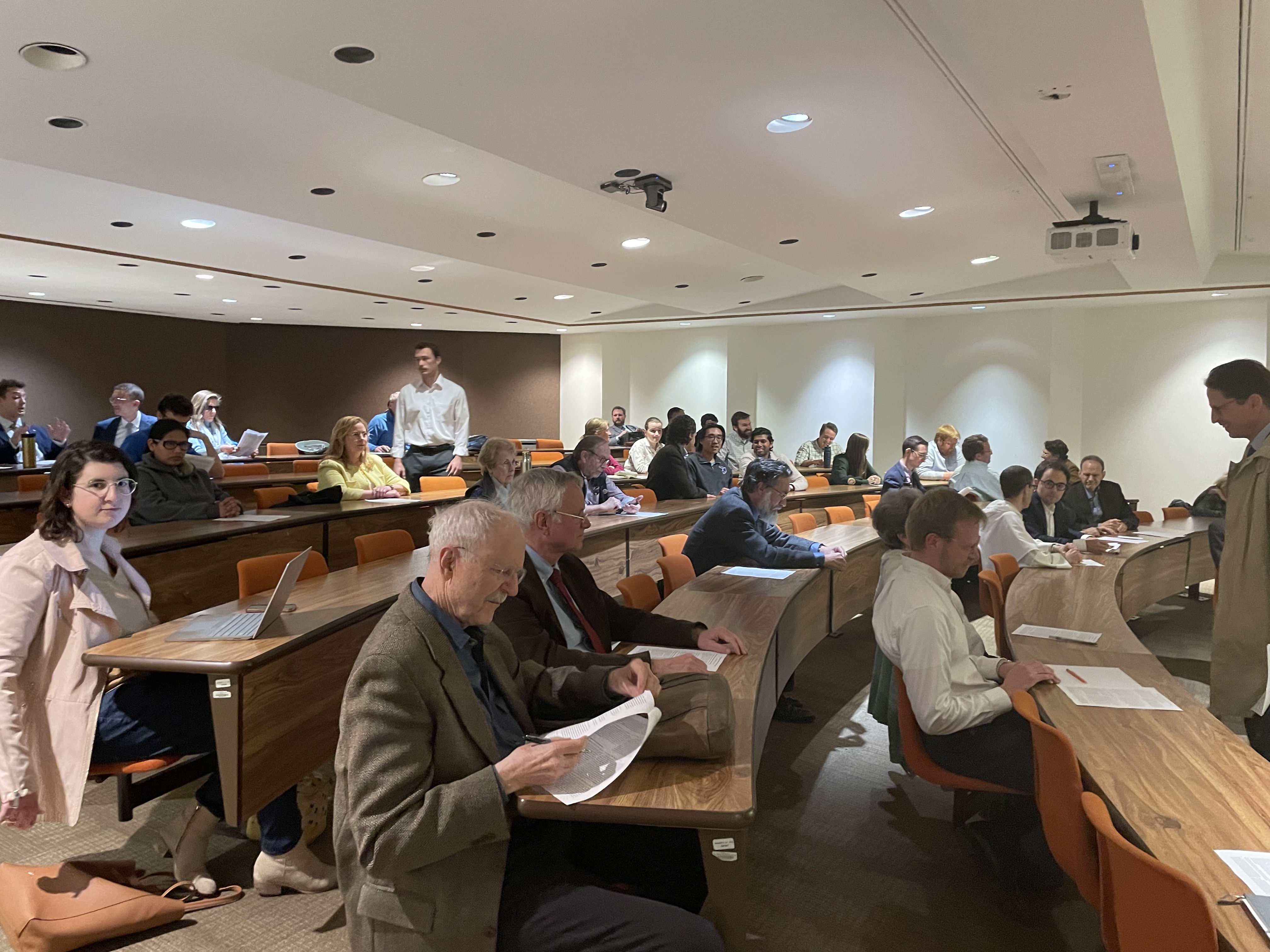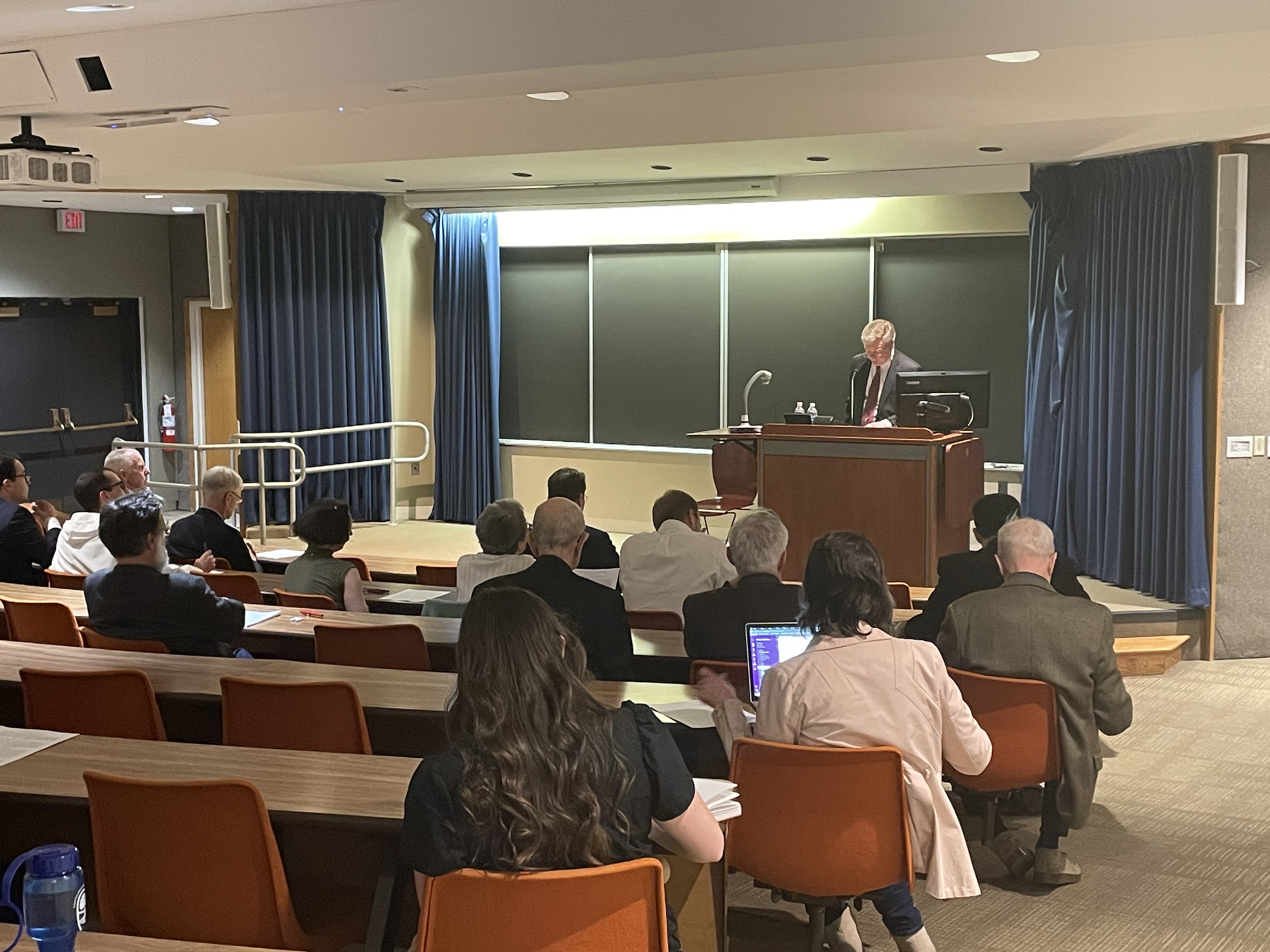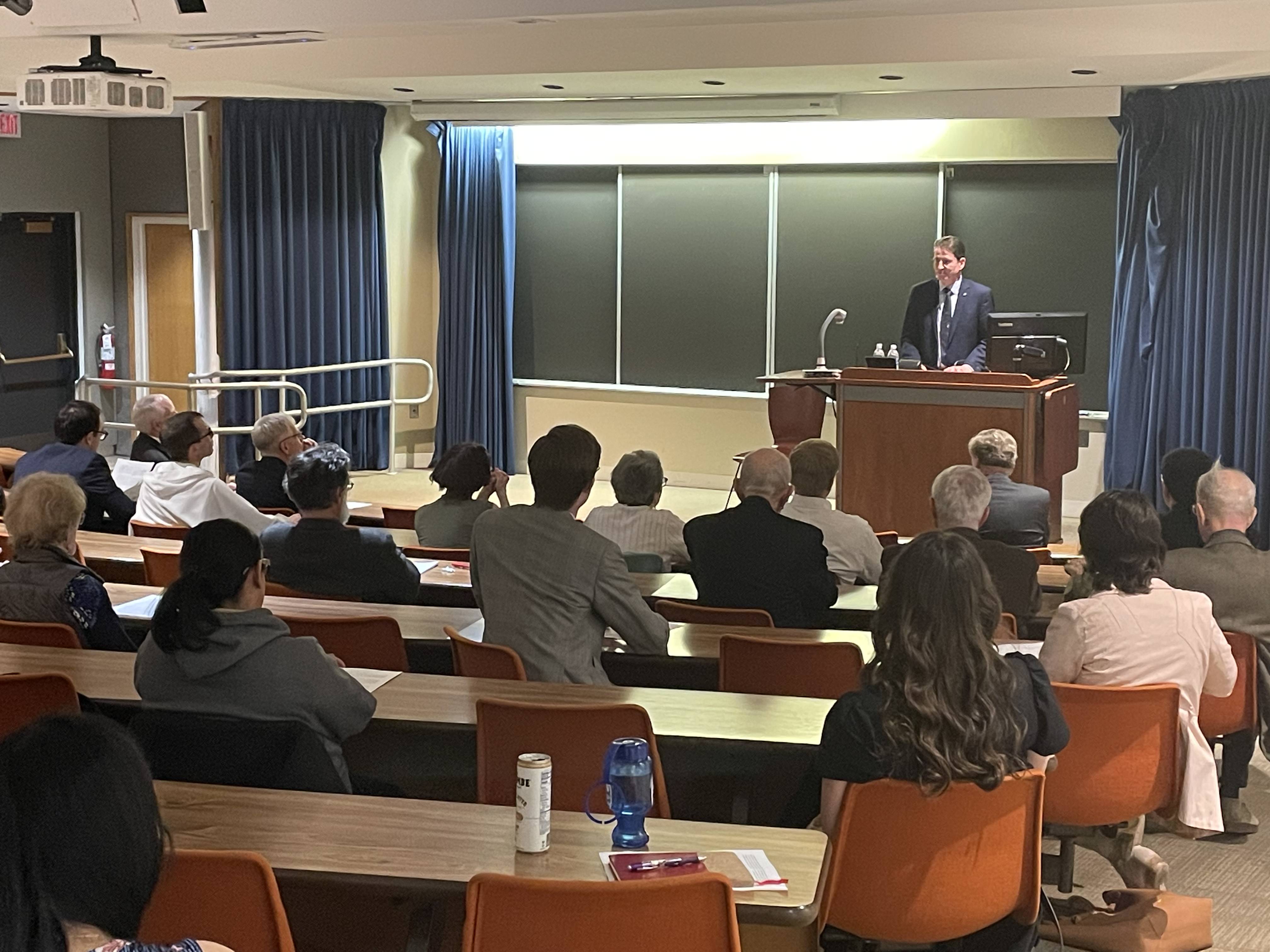 Tobias Hoffmann, Ph.D., Professor of Medieval Philosophy at the Sorbonne Université in Paris, France, and a Research Professor of Philosophy at The Catholic University of America, gave a lecture titled, "The Fragmentation of Practical Wisdom in Medieval Philosophy," for the School of Philosophy's Antonio S. Cua Memorial Lecture Series.
Tobias Hoffmann, Ph.D., Professor of Medieval Philosophy at the Sorbonne Université in Paris, France, and a Research Professor of Philosophy at The Catholic University of America, gave a lecture titled, "The Fragmentation of Practical Wisdom in Medieval Philosophy," for the School of Philosophy's Antonio S. Cua Memorial Lecture Series.
The Antonio S. Cua Memorial Lecture was established in 2007 through the generosity of Professor Cua’s family as a way of preserving his memory and advancing his scholarly work by supporting public lectures presented by the School of Philosophy in the areas of Chinese and Western moral philosophy.
Professor Hoffmann is the author of two monographs and six other books, as well as more than fifty articles (journal articles, book chapters, encyclopedia articles). He specializes in medieval philosophy, with an emphasis on moral philosophy and medieval theories of cognition.
Lecture Abstract
According to Aristotle, phronesis (practical wisdom, prudence) is the intellectual virtue that allows one to make good decisions concerning life as a whole. Thus it is a single virtue that governs all aspects of the moral life and that serves therefore as prerequisite for all the moral virtues. Phronesis requires itself the presence of the moral virtues, which maintain focus on what is truly beneficial. Due to this interdependence, Aristotle argues that an individual possesses either all the moral virtues or none. In the thirteenth century, a rather unsuspicious thinker introduced the idea that prudence is not a singular virtue but rather a set of distinct prudences, each governing a specific domain of life. On that view, the moral virtues can be cultivated separately, much like one might master a particular craft without mastering others. This paper will explore the controversy between defenders of a single, unified prudence and those of multiple prudences. The debate concerns not only the conception of prudence, but of ethics tout court. Historically, the proponents of the multiple-prudences view had the upper hand, but there remain strong reasons in favor of Aristotle’s original position.




